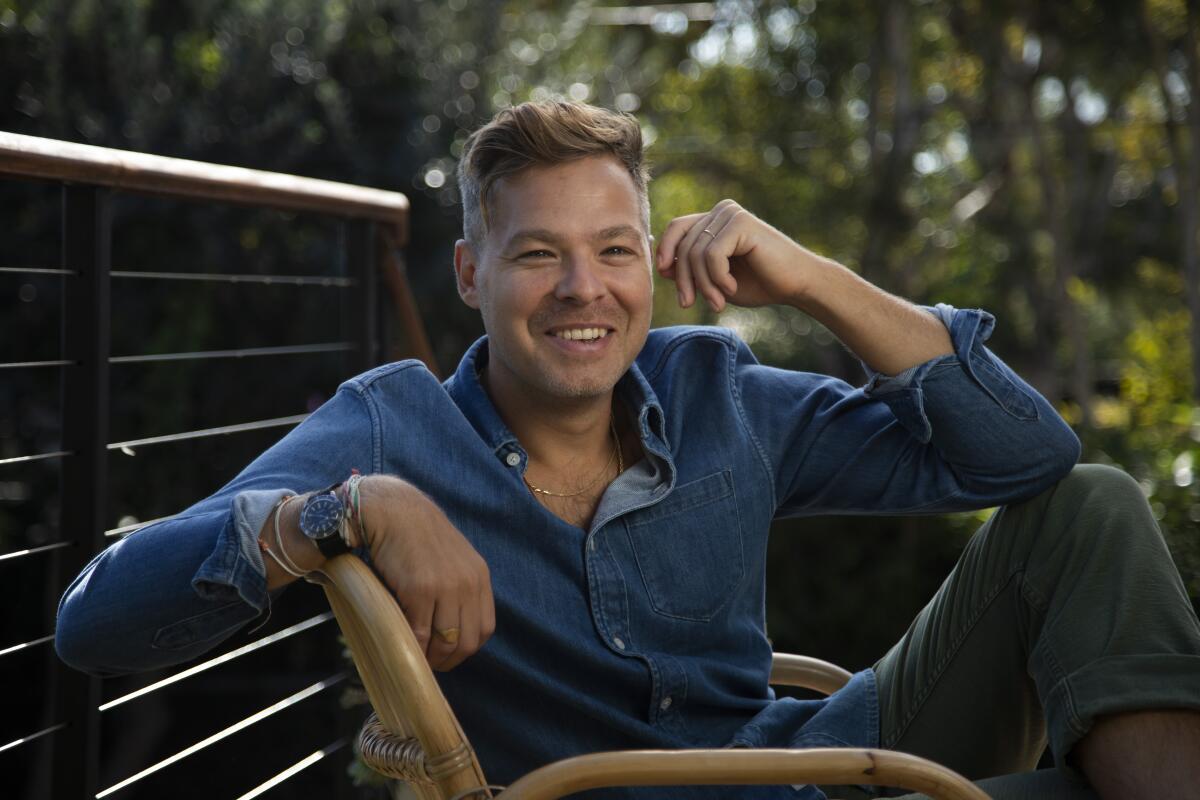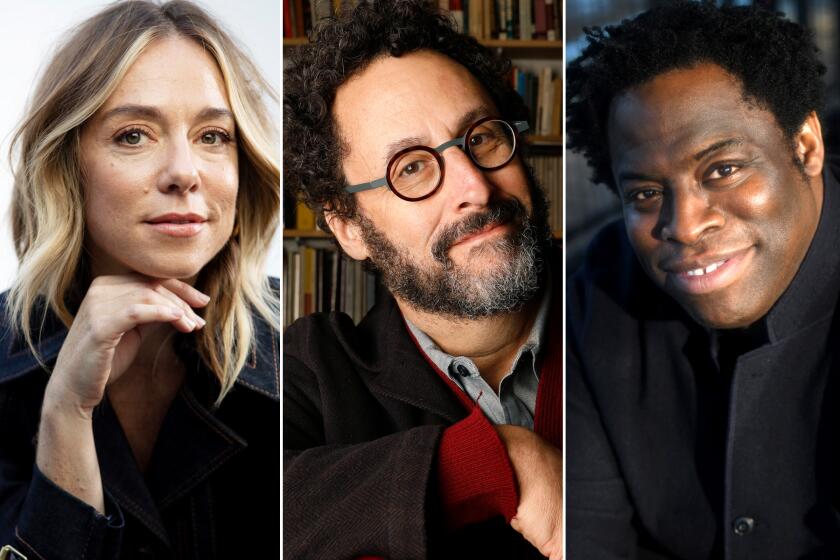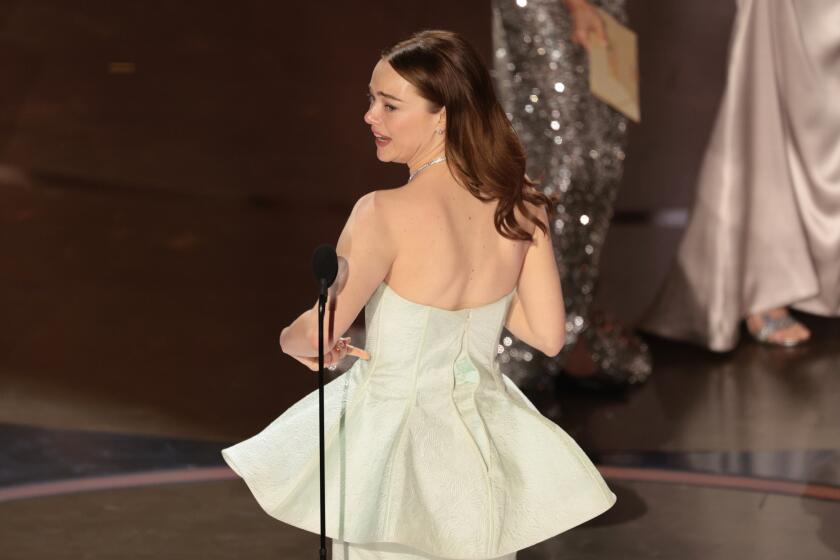Zach Baylin knew he could tell the Williams sisters’ story. But did they?

There’s a legend in the annals of tennis that’s nearly too crazy to be true. It goes: In 1978, a cotton-picker’s son and security guard in Compton, Calif., named Richard Williams watched a tennis match on TV. When the match was complete, Richard saw the unassuming victor receive a check for $42,000. More money than he’d made in a year.
Inspired, Richard sat down that night and wrote a (now mythic) 78-page plan for how to turn his daughters into grand slam champions. The only problem was — Richard had never held a tennis racket in his life. He had no inroads into the expensive, predominantly white sport, and the two talented daughters, for whom this whole plan was hatched, had not yet even been conceived.
Those daughters, of course, would be Venus and Serena Williams, and decades later, after teaching himself and his wife, Oracene Price, to play tennis on the bullet-ridden courts of Compton, learning from instructional VHS tapes he’d ordered through the mail, and after years of financial sacrifice and racial animus, nearly everything Richard predicted in his plan came to pass. His daughters have combined to win 30 Grand Slam singles titles and are without a doubt two of the greatest athletes in history.
As a tennis fan, I knew the outlines of this story from years watching Venus and Serena on TV, but I was reminded of it in 2017 during a meeting with producer Tim White. Our meeting was actually about another project (which I didn’t get), but on my way out I mentioned I was headed to the U.S. Open in New York. Tim asked: You like tennis?
In their own words: Tony Kushner, Rebecca Hall, Jeymes Samuel and other screenwriters take us on a journey through writing their film scripts.
As it turned out, Tim (a ridiculously talented tennis player himself) had been trying to make a film about Richard for years, and when he reminded me of the story, I immediately begged him to hire me.
I know it sounds overblown, but it was one of those rare times when you get hit with a lightning bolt and know that if you don’t move your ass now, you’ll regret it forever. I love tennis and am fascinated by prodigies. I have two young children and wanted to write about being a parent, and while I’d written scripts I was proud of, I hadn’t had a movie made and was desperate to be a part of something special. Tim said, “Crack the story and we’ll talk.”
I went home that night and read everything I could about Richard and his family. I read about the horrific racism he faced in Shreveport, La., in his youth and his bombastic proposal to buy Rockefeller Center; I read of his tumultuous fights with famous agents and coaches and his controversial decision to pull his daughters out of junior tournament tennis. I read the good and the bad, and a few nights later, a little like Richard, I wrote up my plan.
I wrote Tim and his brother (and partner) Trevor that this movie could be not just one of the most inspiring underdog stories in sports history; it was also an ode to a family and a character study of a controversial dreamer determined to earn respect and a better life for his family, by any means necessary. To this day, I still think that email is the best thing I’ve ever written. They gave me the job. There was only one problem. We had no access to the family.
We knew to get the film right and to nail the intimate details and emotions, we would need Venus, Serena and the entire family’s trust to help us tell their story. For a writer with no produced credits, this was no small ask. So we decided as a team that the only chance we had to earn their confidence and make the movie was to bring them a great script.
After nine months of research and writing, we thought we had a pretty good one. Tim was fielding interest from studios, financiers and even a former-president-turned-producer.
Miraculously, we’d also heard Will Smith was interested in playing Richard, but we still hadn’t gotten the one crucial thing that Will, the producers and I all knew we needed. The blessing from the family.
It took months of begging and pleading, but finally in 2018 I returned to the U.S. Open, this time with Tim to have lunch with Isha Price, Venus and Serena’s sister and manager. During our lunch, Tim and I pitched our guts out while Isha listened politely, holding onto her cards. She was familiar with the script and understandably wary of letting outsiders tell their story, but she left the restaurant that day saying she would take another look. I was sure we were dead. But Isha read the script I had written about her family, conferred with her sisters, and called us to say we could meet again the next day. I’ll never thank her enough.
For the rest of the tournament, on the days they weren’t playing, Tim, Trevor and I met with the Williams family to hear their stories firsthand. We heard their concerns, struggles, triumphs and emotions that were absolutely essential in capturing their voices. By the end of those weeks, I sat with Tim in the Williams family box at Arthur Ashe watching Serena play in the finals with their blessing to make the movie. Three years, a pandemic and many other challenges later, we have a Warner Bros. film, with an incredible cast, shot by Robert Elswit, directed by the remarkably talented Rei Green.
The journey it took to get this script made is in no way commensurate with the impossible, improbable journey Richard began when he wrote out his plan. But, he certainly inspired me to take a swing on a dream that many times seemed impossible. And, like Richard proved, crazier things have happened.
More to Read
From the Oscars to the Emmys.
Get the Envelope newsletter for exclusive awards season coverage, behind-the-scenes stories from the Envelope podcast and columnist Glenn Whipp’s must-read analysis.
You may occasionally receive promotional content from the Los Angeles Times.







